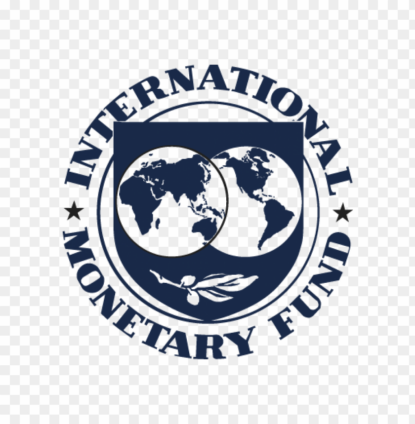Beyond 2024, Ghana’s Gross Domestic Product (GDP) growth is projected to gradually increase to its potential level of about 5.0%.
This is consistent with many forecasts by international research institutions.
According to the International Monetary Fund (IMF) Country Report on Ghana, the macroeconomic outlook remains positive.
Notwithstanding headwinds from the continued fiscal consolidation and the ongoing dry spell, the Fund said the strong outturn for 2024 quarter 2 real GDP growth points to greater-than-expected underlying growth.
Hence, it revised its growth projection for 2024 upward to 4.0% (3.1% at the 2nd Economic Credit Facility (ECF) review).
The Fund also projected that inflation would reach 18% by end-2024 (revised up from 15%), mainly reflecting price pressures from a weaker cedi and the dry spell.
“Continued tight monetary policy will bring inflation back to the Bank of Ghana’s target band (8±2 percent) by end-2025”, the Fund said.
Further progress on fiscal consolidation and the completion of the debt restructuring, it explained would ensure that Ghana’s public debt is firmly on a sustainable trajectory.
Also, the current account deficit is projected to remain in balance until 2026, while international reserves would reach 3 months of import coverage.
Downside Risks to Outlook Remains High
Nevertheless, the IMF said the downside risks to the outlook remain high.
On the external side, it pointed out that an intensification of regional conflicts, spillovers from the conflicts in Ukraine and the Middle East, or commodity price volatility would negatively impact Ghana through higher imported inflation and risk aversion.
“If protracted, weak cocoa harvest could affect exports and growth prospects. More generally, Ghana is subject to risks related to climate shocks. On the domestic side, policy slippages ahead of the end-2024 general elections or during the political transition could undermine macroeconomic stability, deteriorate domestic financing conditions and the debt dynamics, and complicate debt restructuring discussions with Ghana’s remaining external commercial creditors”.
It also mentioned that risks to the inflation outlook are tilted to the upside, as the disinflationary process took place at a slower-than-anticipated pace in half-year 2024 and exchange rate volatility has increased.
Latest Stories
-
Lecturer cautions government against calls for canceling contracts
25 seconds -
Arsenal held to frustrating goalless draw by Everton
3 minutes -
Liverpool twice fight back with 10 men to deny Fulham
8 minutes -
Police intercept truckload of Agenda 111 project materials
36 minutes -
5 NPP parliamentary candidates demand collation and re-collation of results, insisting they won
56 minutes -
US Court jails two Ghanaian nationals for internet fraud and money laundering
1 hour -
Bussi Deals Africa and Women of Faith advocate for sustainable development in Southern Volta
1 hour -
Togo’s Coastal Triumph: A Blueprint for Ghana’s WACA success
2 hours -
Catholic Diocese of Jasikan condemns violent attack on 3 priests in Nkwanta, demands justice
2 hours -
Shamima Muslim hits back at Afenyo-Markin for calling NDC ‘violent’
3 hours -
Collation procedures weren’t followed in some constituencies – EC justifies re-collation
4 hours -
Electoral violence is a culture in Ghana, we must fight it seriously to end it – Kofi Bentil
5 hours -
We’ve tolerated impunity related to elections in Ghana – Sulemana Braimah
5 hours -
CODEO condemns disruptions by party supporters at collation centres
5 hours -
Renowned Ghanaian and African firms honoured at 2024 TWARM Awards
5 hours

